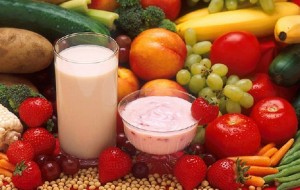(ThyBlackMan.com) Just yesterday you complained to a colleague at work “I eat healthy, and I don’t snack between meals, so why can’t I lose any weight?” And more than likely, there’s at least one person in your office who eats all the time, and never seems to gain any weight.
But guess what? You may not be losing weight because you don’t snack. Not snacking is actually the wrong thing to do…as long as you do it right, that is.
Why Is Snacking So Important?
Think about this – our bodies are evolved to graze; when food gets scarce, we start to retain fat as a way of protecting ourselves from famine…and that’s exactly what happens when you don’t snack between meals. Basically, your body doesn’t know where its next meal is coming from, so it’s afraid to shed the extra pounds. What’s worse is that, when you do finally allow yourself to eat a meal, you may end up eating more than you need to because you’re famished.
That’s why snacking is so important: In fact, when Penn State researchers fed subjects just one humble apple before mealtime, the subjects consumed nearly 190 fewer calories.
But…exactly what should you be snacking on?
Yogurt:
While many African Americans are lactose intolerant, quite a few have discovered that certain types of dairy, including yogurt, are a little more  gentle to their digestive system. Yogurt is teeming with calcium, which promotes muscle growth; and probiotic bacteria, which bolsters your immune system. What’s more, study participants who ate yogurt daily lost 81 percent more belly fat than those who didn’t, according to a study published in the International Journal of Obesity. Want to make it even healthier? Add a few berries along with some nuts or seeds.
gentle to their digestive system. Yogurt is teeming with calcium, which promotes muscle growth; and probiotic bacteria, which bolsters your immune system. What’s more, study participants who ate yogurt daily lost 81 percent more belly fat than those who didn’t, according to a study published in the International Journal of Obesity. Want to make it even healthier? Add a few berries along with some nuts or seeds.
Best
Fage Total 2% Plain Greek Yogurt (7 oz container)
130 calories
4 g fat (3 g saturated)
17 g protein
8 g sugars
Worst
Dannon Fruit on the Bottom (6 oz container)
150 calories
1.5 g fat (1 g saturated)
6 g protein
26 g sugars
Almonds:
Almonds are an excellent source of heart-healthy monosaturated fats, and, pound for pound, a better source of protein than eggs. That’s part of the reason why research published in the journal Obesity demonstrated that people who frequently eat nuts are less likely to gain weight. Just be sure to eat them whole: A study from the Journal of Nutrition found that the flavonoids in the skin combine with the vitamin E in the nut to double the antioxidant dose.
Almonds (1 oz)
163 calories
14 g fat (1 g saturated)
6 g protein
3.5 g fiber
Cereal:
Some cereals, like the granola below, look healthy but actually have as much sugar as a candy bar. Kashi’s GoLean lives up to its healthy moniker. This bowl has twice as much fiber as an apple, three times as much protein as a large egg, and even with milk it manages to keep the calorie load below 200 per bowl.
Best
Kashi GoLean Original (1 cup with 1/2 cup of 1% milk, lactose-free milk or low-fat soy milk)
195 calories
2.5 g fat (.5 g saturated)
12 g sugars
17 g protein
10 g fiber
Worst
Kashi Summer Berry Granola (3/4 cup with 1/2 cup 1% milk)
385 calories
10.5 g fat (2 g saturated)
19.5 g sugars
Dip & Veggies:
Hummus is composed primarily of chickpeas, which have been shown to help regulate blood sugar—probably due to their salutary balance of protein and fiber. Most of that fiber is insoluble, so it promotes colon health. One study even found that people who added chickpeas to their diet ended up taking in fewer total calories. Add to that a few baby carrots and you get the added benefit of vision-preserving, skin-soothing beta-carotene.
Best
Sabra Roasted Red Pepper Hummus (2 Tbsp with 10 baby carrots)
105 calories
6 g fat (1 g saturated)
200 mg sodium
2.5 g protein
4 g fiber
Worst
Lay’s Smooth Ranch Dip (2 tbsp) with Ruffles Loaded Chili & Cheese Potato Chips (1 oz)
220 calories
15 g fat (1 g saturated)
390 mg sodium
Crunchy Snacks:
Spelt is a grain related to wheat that packs more fiber and protein—and at 6 calories per pretzel, the dietary bang for your buck is undeniable. Over-saltiness is always a concern with pretzels, but the sodium level in this snack is mild. Combine that with Newman’s Own’s longstanding support for charitable causes—and, in Nell Newman’s Organics company, a robust commitment to sustainable, organic farming—and you’ve got a product you’ll proudly pluck from the shelf. Pair these with a hunk of cheddar to rope even more protein into your snack break.
Best
Newman’s Own Organics Spelt Pretzels (20 pretzels)
120 calories
1 g fat (0 g saturated)
240 mg sodium
4 g protein
4 g fiber
Worst
Newman’s Own Organics Salted Rounds Pretzels (16 pretzels)
220 calories
2 g fat (0 g saturated)
800 mg sodium
4 g protein
0 g fiber
Always remember that the true keys to snacking right is to find snacks that are low in sugar and high in protein…and to make sure you’re not eating for the wrong reasons (i.e. bored, stressed, tired, etc.)
Written by Gemma Greene
















Peace and I give thanks for this!!